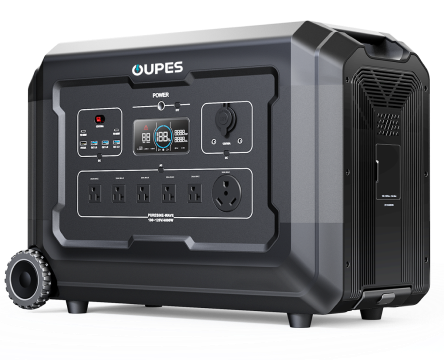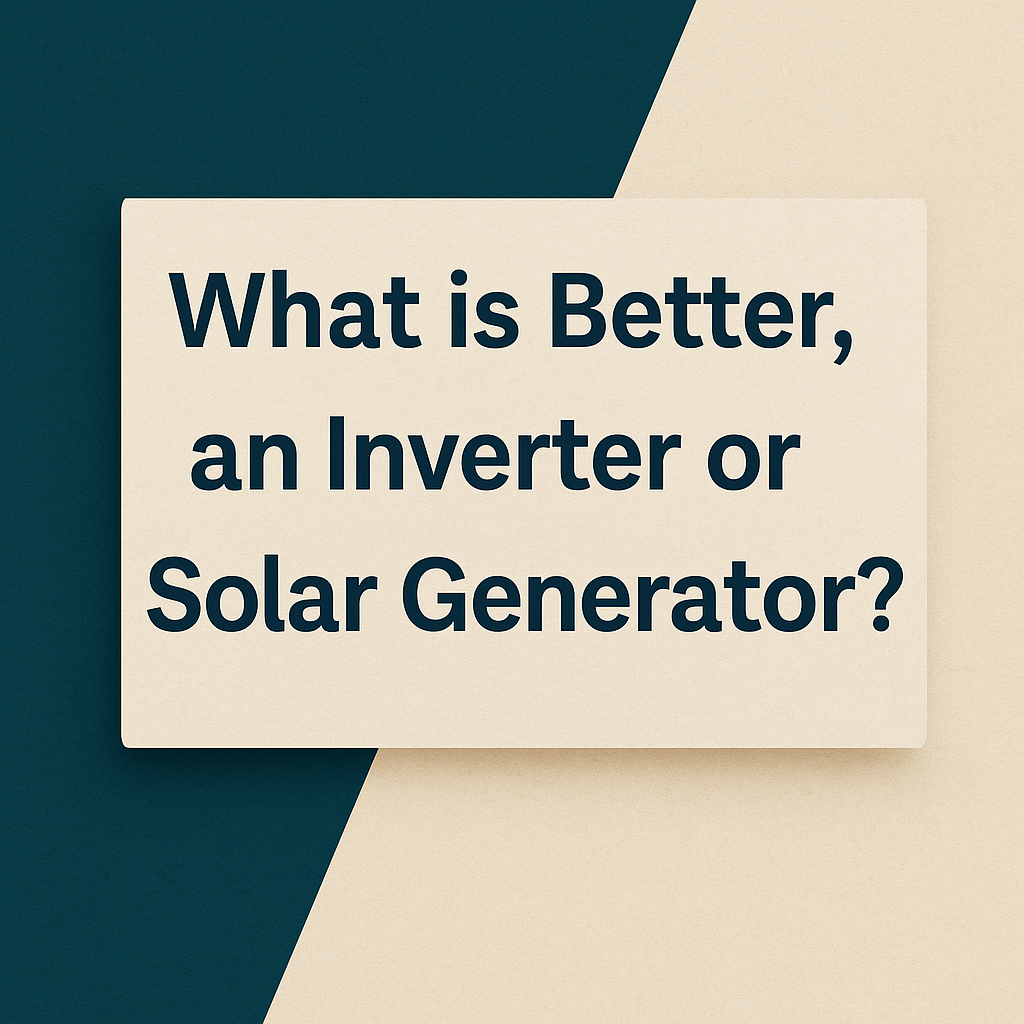As utility bills are getting higher, more and more people are looking for off-grid energy options. One popular option among these is a solar generator. It allows you to power your home using the most abundant energy source: the sun.
However, before you go and spend your money on these generators, you might want to find out if thy are eligible for a tax credit. The short answer is—yes, but it depends on how you're using them, how they're installed and whether they are following any of the IRS rules.
In this post, we will understand what is a solar tax credit, when it is applicable to solar generators, which equipment qualifies, and how an efficient solar generator can help you earn a better tax credit.
Understanding the tax credit for solar generators
The tax credit for solar generator systems is included in a more extensive federal program called the Investment Tax Credit (ITC). ITC (introduced in 1962), is a federal tax incentive for business investment. Later on this program diversified and now it includes various programs like:
● Reforestation Credit
● Rehabilitation Tax Credit
● Solar Energy Investment Tax Credit
● Federal Business Energy Investment Credit among others.
Solar generators qualify for this federal tax credit, but only under certain conditions. The following is the eligibility criteria:
● It must be part of a solar-powered system (i.e., it must be charged by solar panels).
● The solar panels and battery system must be installed at your primary or secondary residence in the U.S.
● The system must be new (not used or refurbished).
● If you solar generator comes with a battery, it should be at least 3 kWh capacity.
● You must be the owner of the system—not leasing it.
● The system must be fully installed and operational on or before December 31, 2025
If you solar generator qualifies for the above criteria and is operational by the end of 2025, you are eligible for up to 30% federal tax credit on qualifying costs.
What are the “qualifying costs”?
Qualifying costs are all the costs tied to purchasing and installing your solar generator system, including:
● Solar panels
● Mounting hardware
● Solar-compatible batteries
● Installation labor
● Sales tax
● Wiring and equipment
The ITC will issue up to 30% of solar tax credit for elegible systems.
Do portable solar generators qualify?
Portable solar generators are in high demand for camping and outdoor use, as well as for emergency backup. However, not every portable generator qualifies to receive the tax credit for solar generators.
When portable units don't qualify
In most cases, if your portable solar generator is:
● Used occasionally (like on road trips or camping)
● Not permanently installed at your home
● Not paired with solar panels,
Then it likely won’t qualify for the federal solar tax credit. The IRS generally requires the system to be part of a residential solar energy setup that provides electricity for your primary or secondary home.
When they can qualify
That said, some portable solar generators can be eligible, if they meet certain conditions:
● They must be charged using solar panels.
● The solar panels and battery must be installed at your home.
● The system must contribute to your household power in a measurable way.
● If your portable solar generator comes with a battery, it must be at least 3 kWh.
For example, if you buy a solar generator from Oupes along with solar panels and use it to power your home during outages or store energy for daily use, it may meet the requirements.
The key is not whether the unit is portable, but how and where it’s used. If your setup is like a home solar power system, even if it’s mobile, it has a better chance of qualifying under current solar incentives.
State-level solar incentives
Beyond the federal credit, many states offer additional solar incentives, including:
● Property tax exemptions
● Sales tax waivers on solar equipment
● State-level rebates (NY offers a solar credit of upto $5,000 and covers 25% of your solar system)
These incentives vary by the state you live in, but when combined with the federal credit, they can save you a lot of money in total out-of-pocket costs, even as the solar panel prices continue to fluctuate across region.
Best practices to qualify for the tax credit
To make sure your tax credit for solar generator purchase is eligible, follow these best practices:
1. Buy from a certified supplier: OUPES provides solar generators and solar panels that are compliant with U.S. residential solar standards.
2. Document everything: Keep all receipts, warranty info, and proof of solar panel compatibility.
3. Consult a tax professional: To avoid surprises during tax season, confirm your setup qualifies.
FAQs
What disqualifies you from solar tax credit?
Using old or secondhand equipment, failing to use solar panels to power your generator, or using the system only for recreation or commercial use may disqualify you.
Can the IRS deny a solar tax credit?
Yes. If the installation isn’t at your primary or secondary residence, the equipment isn’t new, or it's not powered by solar, the IRS can deny the claim.
Do off-grid solar systems qualify for solar credits?
Yes, if the system is installed at your residence and meets the federal requirements.
What is the income limit for solar tax credit?
There is no income limit for claiming the federal solar tax credit. Anyone who pays federal taxes and meets the other criteria can apply.
Conclusion
So, are solar generators eligible for a tax credit? The answer is: they can, under the right conditions. If your solar generator is powered by solar panels, is installed at your home and is installed correctly, you might qualify for the tax credit for solar generator expenses.
Choosing the right setup is probably the most important, and OUPES offer reliable solar generator kits that pair with solar panels and are ideal for both emergency power and home energy needs.
When paired correctly and documented thoroughly, these systems can help you take full advantage of the solar tax credit, reduce your energy bills, and move closer to energy independence.

































Leave a comment
This site is protected by hCaptcha and the hCaptcha Privacy Policy and Terms of Service apply.